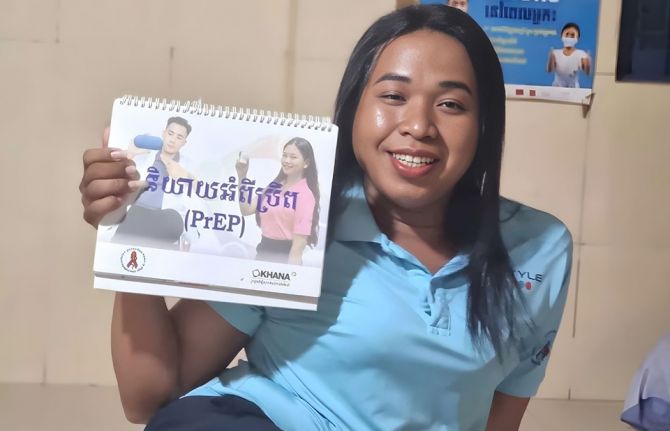
Feature Story
They don’t judge, so why should I?
28 February 2019
28 February 2019 28 February 2019“I am lucky,” Charles Somé said. The hyperactive human rights advocacy worker from Burkina Faso recalls going to a training event and chiding some of the men there about their sexual orientation. “I had pre-conceived ideas and asked them “Don’t you want to get married?”, “Don’t you want to have kids?”” he said. One young man opened up to him and, after days of honest conversations, Mr Somé had a sea change in his views.
“It dawned on me that if I am not judged, why should I judge others,” Mr Somé said. From then on, when lobbying on behalf of gay men and other men who have sex with men, he has used the word “we”.
“I defend them and respect them,” Mr Somé, who works for the REVS PLUS/Coalition PLUS nongovernmental organization, said.
Homosexuality is not illegal in Burkina Faso, but stigma and discrimination remains high. Many men marry and hide their double life. Support groups for lesbian, gay, bisexual and transgender people have popped up, but discretion is key.
“I am forced to hide because I am not accepted,” Rachid Hilaire (not his real name) said. He joined an informal conversation group in his home town, Bobo-Dioulasso, where young men talked about relationships, sex, HIV and other issues. “I had many doubts about myself, but once I had more confidence in myself, I felt I could help others,” he explained. Standing outside the REVS PLUS meeting room, he joked with Mr Somé about keeping an eye on him. Mr Hilaire is one of 50 REVS PLUS peer educators who facilitate informal talks like the one he had attended tailored to gay men and other men who have sex with men. After being trained, he and another peer educator led frank talks with men.
Mr Hilaire’s biggest challenge, he said, remains educating the general public, along with political and religious leaders. “I blame the older generation for their lack of awareness,” he said. “Everyone deserves to be free and I long to feel that freedom,” he said.
Yacuba Kientega (not his real name) fled his home in Bobo-Dioulasso and moved to Ouagadougou when his family found out he had relationships with men. “I eventually came back to pursue my studies in Bobo-Dioulasso, but am living in a different neighborhood,” he said. For him, he felt things had become better for gay men, but he would not give up the fight.
As a lobbyist for an HIV umbrella network, Mr Somé’s battle for people’s rights never ends.
“I really try to have underrepresented communities heard by the government and parliamentarians,” he said. He believes support groups and peer education have helped to reach key populations, such as people who inject drugs, gay men and other men who have sex with men and sex workers. “We have seen an uptick in health-care services by focusing on certain communities and I hope it will stay that way,” Mr Somé said. “Ending AIDS will necessitate really tackling stigma and putting the onus on prevention,” he added.
The UNAIDS Country Director for Burkina Faso, Job Sagbohan, couldn’t agree more. “The HIV response must follow the evolution of the epidemic,” he said. At one time, we had to save lives and we succeeded by concentrating on treatment for all, he explained. “To end the HIV as a public health threat, we need to zero in on prevention and awareness,” he added. “It’s the only way to maintain our progress and end AIDS.”



